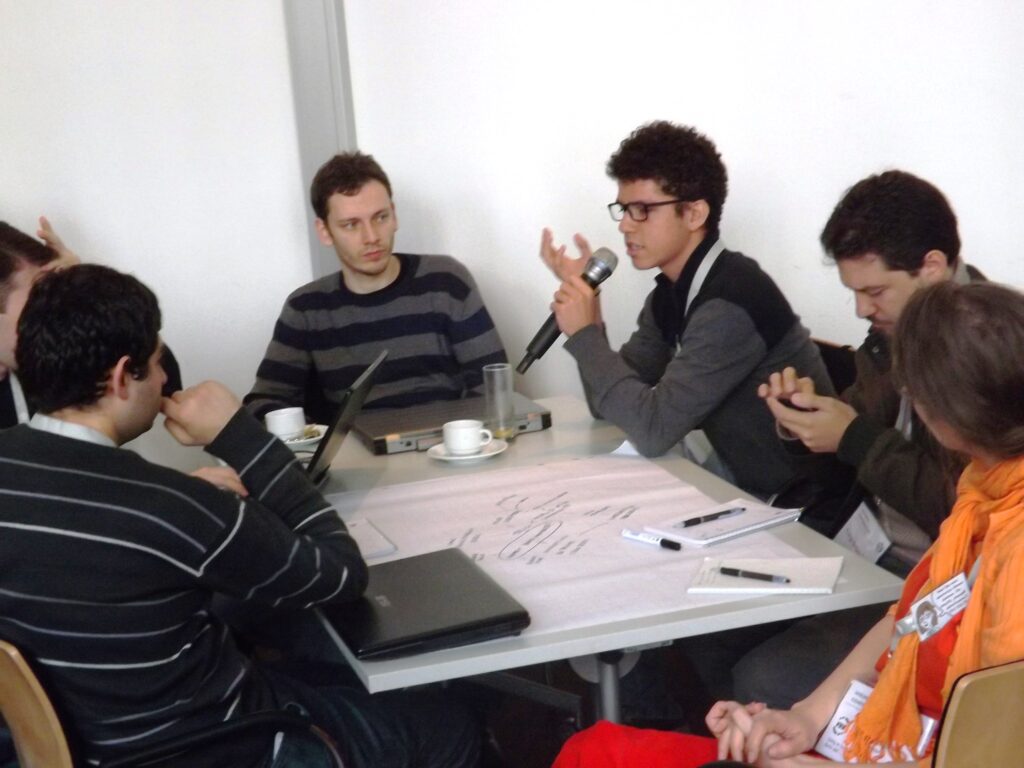“While the election results demonstrated a divide in viewpoints on national politics, sometimes it can be easier to identify areas of common ground with people you know personally and with whom you might share experiences using local roads, parks, schools, and businesses,” said Leah Seppanen Anderson, Ph.D., Executive Director of the The Stavros Niarchos Foundation (SNF) Paideia Program at University of Pennsylvania. “In this local context, it may be possible to forge coalitions with diverse groups of people. That requires an interest in getting to know others, hearing about their concerns, and a willingness to cooperate with people or organizations to address specific issues, even if you don’t agree on everything.”
The SNF Paideia Program is a local group that encourages dialogue between people with different viewpoints. It serves as a hub for civic dialogue in undergraduate education at Penn. SNF Paideia collaborates with campus entities to promote opportunities for students to develop the knowledge, skills, ethical frameworks, and experiences necessary to be informed, engaged, and effective community members and leaders in society.
The SNF Paideia Program encourages the free exchange of ideas, civil and robust discussion of divergent views, and student and community wellness through SNF Paideia-designated courses, a Fellows program, and campus events.
Dr. Anderson told us SNF Paideia has sponsored and co-sponsored events this fall aimed at cultivating skills for civil dialogue and providing space for Penn students and the public to practice engaging with others.
A few examples include:
1. Co-sponsoring with the President’s Office the Silfen Forum on Civil Discourse in Uncivil Times, which featured prominent panelists with diverse political perspectives (Jeb Bush, Julian Castro, Donna Brazile, Peggy Noonan, and Ashley Parker) and a student-hosted dialogue after the event led by Penn’s Table Talk group.
2. A series of Can We Talk? student forums to dialogue about pressing national issues. Penn students join with other college students from the region in a moderated conversation. The last in the series this year was: https://snfpaideia.upenn.edu/events/can-we-talk-civil-dialogue-for-troubled-times/. You can read more about the Red and Blue Exchange, the Paideia initiative that sponsors this event here: https://snfpaideia.upenn.edu/initiatives/red-and-blue-exchange/
3. An online panel series on Race and Anti-racism in Contemporary America led by Professor Michael Delli Carpini, the faculty director of the SNF Paideia Program, provides engaging, expert conversation on a wide range of ways in which racism affects life in the United States. These are open to the public and serve as an excellent starting point for future dialogue and engagement.
Penn also supports the creation of SNF Paideia designated courses that are designed to equip students with the knowledge and experience they need to engage in civil dialogue. Here’s more details about their courses: https://snfpaideia.upenn.edu/cultivating-robust-civil-dialogue-during-times-of-unrest/.
Students report that they appreciate the opportunity to engage with diverse students at the RBX Can We Talk? Forums. In addition, students share their experiences in a couple of the courses in this recent article: https://penntoday.upenn.edu/news/lesson-grit-angela-duckworth.
What brought Penn to establish this forum? Dr. Anderson said Penn wanted to further enhance its already strong commitment to service and civic engagement by creating courses, programming, and funding that cultivates students’ skills to engage in meaningful dialogue across difference. The Stavros Niarchos Foundation made this possible with a generous grant to start a five-year pilot program at Penn.

